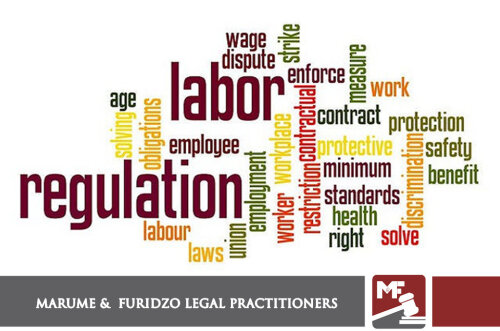Best Family Lawyers in Zimbabwe
Share your needs with us, get contacted by law firms.
Free. Takes 2 min.
Free Guide to Hiring a Family Lawyer
Or refine your search by selecting a city:
List of the best lawyers in Zimbabwe
About Family Law in Zimbabwe
Family law in Zimbabwe encompasses a range of legal matters that affect familial relationships, including marriage, divorce, child custody, adoption, and inheritance. It seeks to regulate the rights and duties of family members towards each other and is primarily governed by the Marriage Act, the Customary Marriages Act, and the Matrimonial Causes Act, among other statutes. Zimbabwean family law recognizes both civil law and customary law marriages, catering to the diverse cultural practices within the country.
Why You May Need a Lawyer
Navigating family-related legal issues can be complex, and individuals might require legal assistance for various reasons, including:
- Divorce proceedings, which can involve the division of property and determination of spousal maintenance.
- Child custody disputes, where determining the best interests of the child is paramount.
- Adoption processes, which require compliance with both local and international legal standards.
- Inheritance issues, particularly those involving family trusts or contested wills.
- Domestic violence situations, which may necessitate protection orders or legal advice.
Local Laws Overview
Zimbabwean family law is a blend of statutory and customary laws. Key aspects include:
- Marriage: Recognizes both civil and customary marriages. Civil marriages are monogamous, while customary marriages might be polygamous.
- Divorce: Governed by the Matrimonial Causes Act, focusing on the irretrievable breakdown of marriage as a ground for divorce.
- Child Custody: Decisions are guided by the Children's Act, emphasizing the best interests of the child.
- Inheritance: Matters of inheritance can be guided by the Deceased Estates Succession Act as well as customary practices.
- Domestic Violence: The Domestic Violence Act provides for legal protection and recourse for victims of domestic violence.
Frequently Asked Questions
What types of marriage are recognized in Zimbabwe?
Zimbabwe recognizes civil, customary, and religious marriages. Civil marriages are registered under the Marriage Act, while customary and religious marriages are recognized under customary law.
How are child custody issues resolved in Zimbabwe?
Child custody issues in Zimbabwe are resolved by considering the best interests of the child, as guided by the Children's Act. Courts strive to ensure that the child's welfare is prioritized in custody arrangements.
What can I do if I'm facing domestic violence?
Victims of domestic violence can apply for protection orders under the Domestic Violence Act. It is advisable to seek legal advice to understand your rights and available protections.
How is property divided upon divorce?
Property division during divorce is guided by fairness, although there is no strict rule on equal division. The court considers various factors, including contributions made by each party and the needs of the children.
Can a foreigner adopt a child in Zimbabwe?
Yes, foreigners can adopt children in Zimbabwe, but they must comply with both Zimbabwean adoption laws and the laws of their home country. The process is closely monitored to ensure the child's best interests are safeguarded.
What happens to inheritance under customary law?
Under customary law, inheritance often follows traditional practices, which may differ from statutory law. It is important to understand the specific customs applicable to your situation.
Is polygamous marriage legal in Zimbabwe?
Polygamous marriages are recognized under customary law but not under civil law. Such marriages must comply with the respective cultural norms and legal requirements.
How can I register a customary marriage?
Customary marriages can be registered with a magistrate or the local Registrar's Office, which provides legal recognition and benefits associated with registered marriages.
What are the grounds for divorce in Zimbabwe?
The primary ground for divorce in Zimbabwe is the irretrievable breakdown of marriage, which can include adultery, cruelty, or living apart for a continuous period.
How can lawyers assist in inheritance disputes?
Lawyers can help navigate the complexities of inheritance law, mediate disputes among heirs, and ensure that the distribution of the estate complies with legal and customary obligations.
Additional Resources
For further assistance, consider the following organizations and resources:
- Legal Resources Foundation: Provides legal aid and information on family law issues.
- Zimbabwe Human Rights NGO Forum: Offers support and advocacy in cases of human rights violations, including family law matters.
- Ministry of Justice, Legal and Parliamentary Affairs: Oversees legal processes and reforms, providing updates and resources related to family law.
Next Steps
If you need legal assistance in family matters, consider the following steps:
- Consult with a family law attorney for personalized advice tailored to your situation.
- Visit your local magistrates' court for information on registering customary marriages or applying for protection orders.
- Contact legal aid organizations if you require assistance but have limited financial resources.
- Familiarize yourself with the relevant statutes and legal provisions to better understand your rights and responsibilities.
Lawzana helps you find the best lawyers and law firms in Zimbabwe through a curated and pre-screened list of qualified legal professionals. Our platform offers rankings and detailed profiles of attorneys and law firms, allowing you to compare based on practice areas, including Family, experience, and client feedback.
Each profile includes a description of the firm's areas of practice, client reviews, team members and partners, year of establishment, spoken languages, office locations, contact information, social media presence, and any published articles or resources. Most firms on our platform speak English and are experienced in both local and international legal matters.
Get a quote from top-rated law firms in Zimbabwe — quickly, securely, and without unnecessary hassle.
Disclaimer:
The information provided on this page is for general informational purposes only and does not constitute legal advice. While we strive to ensure the accuracy and relevance of the content, legal information may change over time, and interpretations of the law can vary. You should always consult with a qualified legal professional for advice specific to your situation.
We disclaim all liability for actions taken or not taken based on the content of this page. If you believe any information is incorrect or outdated, please contact us, and we will review and update it where appropriate.
Browse family law firms by service in Zimbabwe
Zimbabwe Attorneys in related practice areas.
Browse family law firms by city in Zimbabwe
Refine your search by selecting a city.

















